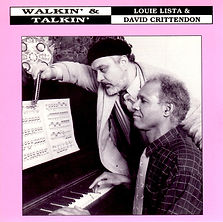
BIO | DAVID CRITTENDON

David Crittendon is the epitome of a modern renaissance man… He’s a teacher, musician, novelist, and activist. A long-term resident of Los Angeles, he was actually born in Decatur, Illinois, and began his studies in Illinois at Millikin University. He eventually earned his B.A. in Sociology from California State University, Northridge, and his Master’s from Cal State L.A.
Teaching has been one of the great callings of his life. Mr. Crittendon’s worked with students from elementary through high school, teaching English and history, with a special focus on helping young people learn how to express themselves through writing. For him, nothing has been more rewarding than watching students discover their voices.
Music has always been another home for Mr. Crittendon. Over the years, he’s played, composed, and recorded across genres whether classical, rock, blues, R&B, gospel, jazz or soul. One of his proudest projects was the album Walkin’ and Talkin’, which he recorded with his longtime friend and collaborator, world-renowned harmonica player, Louie Lista. Produced by Paul Barrere of the Grammy-nominated group, Little Feat, the record is a lively mix of blues, ragtime, rock ’n’ roll, and jazz.
Mr. Crittendon is also a writer. His first novel, Then See If I Care, is a historical fiction about the great Empress of the Blues, Bessie Smith. Like his music, Mr. Crittendon’s writing grows out of a lifetime love for storytelling, as well as a belief in the power of art to preserve history and connect us to one another.
Outside of teaching and the arts, Mr. Crittendon has been committed to social justice since his youth. In the late 1960s, he was active with CORE (Congress of Racial Equality), working alongside leaders such as Marva Smith, Lou Smith, and Robert Hall (founders of Operation Bootstrap). He was also one of the historic Freedom Summer college students, who travelled to the South to fight segregation… More recently, Mr. Crittendon was featured on the PBS series, Lost LA, where he spoke about the Shindana Toy Company, a community initiative to mass produce Black dolls for Black children to promote self-pride and self-esteem.
At the heart of everything he does — whether in the classroom, on the stage, or on the page — is the same purpose: to inspire expression, share stories, and build connections that last.
